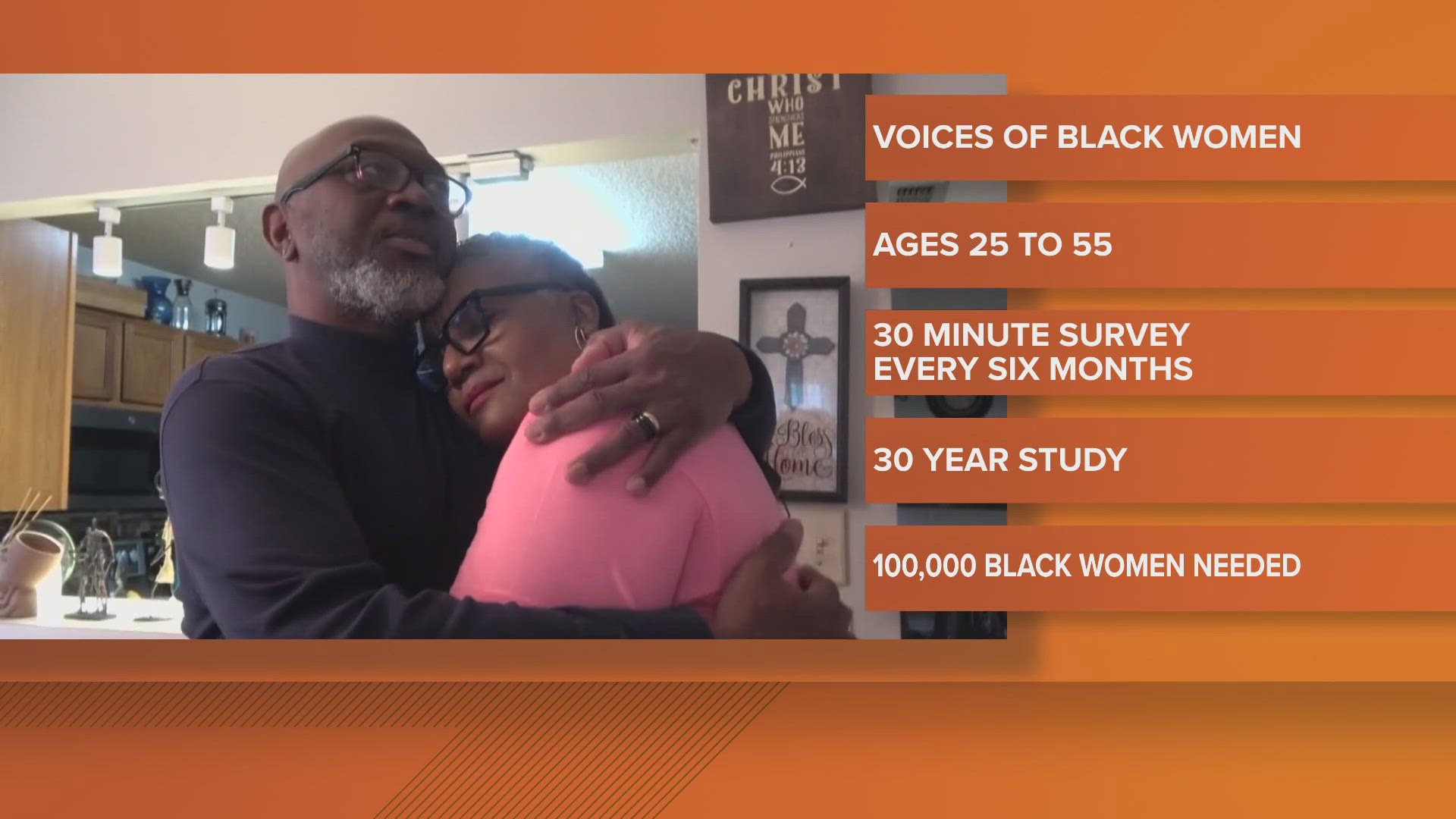JACKSONVILLE, Fla. — VOICES of Black Women is a nationwide study launched by the American Cancer Society focused on the cancer risk and outcomes of Black women in the U.S.
The 30-year study will include 100,000 women in 20 states, including Georgia and Florida.
Black women are more likely to get cancers that are more aggressive and diagnosed at a later stage. And once diagnosed they have the shortest survival rate of any race, or ethnic group. The VOICES study aims to figure out why and change those health outcomes.
Eligible participants between the ages of 25 and 55, are being asked to share their experiences, lifestyles, and behavior.
“You'll provide consent to be enrolled into the study and then you'll complete an hour-long lifestyle and health history survey,” Principal Investigator Dr. Alpha Patel said. “After that, every six months we'll send you a 30-minute survey to update that information or collect new information. Over the course of 30 years its about 30 hours of your time. Just over a day of time in the next three decades to really lead to life saving answers about how to improve the health of Black women.”
Patel and Dr. Lauren McCullough are the lead investigators for the VOICES study. They say this is not a clinical trial and no drugs are involved. They’re gathering lifestyle information to better understand how to prevent cancer and have optimal outcomes for Black women upon diagnosis.
“There are many things that come into play, and I think the drivers are going to be unique for every individual,” McCullough said. “But there are certain commonalities that we know exist across the population including those related to access. But those aren't the only ones. There's been recent research on exposure to certain chemicals and hair and personal care products that's emerged as a plausible driver. We know Black individuals disproportionately live in neighborhoods where there's higher burden of air pollution and heavy metals which we know also drive cancer.”
Patel says the sooner they reach the goal of recruiting 100,000 women, the sooner they'll start to get some answers. There are currently roughly 1,000 women enrolled and recruitment efforts are underway across all 20 states involved. Patel says they’re hoping to enroll 100,000 eligible Black women in three years.
“We want to recognize and acknowledge that there are historical contexts that have prevented studies like this and quite frankly have hindered Black women from being a part of medical research,” McCullough said. “And we are certainly aware of and are sensitive to that. And we've tried to really take care to make sure that we are partnering with women for this study. This cannot be done without the 100,000 voices that we seek to recruit.”
The study will span three decades and seeks to save the lives of future generations, but Patel says they won’t have to wait 30 years to get all the answers.
"The sooner we get to 100,000 the sooner we can start getting to that first wave of answers,” Patel said. "In our work we have documented the inequities experienced by Black women and it's long overdue that we now take the necessary action in partnership with Black women to get the answers that we need to solve the problems that we've documented for so long."
If you are interested in signing up or finding out more, visit voices.cancer.org.

